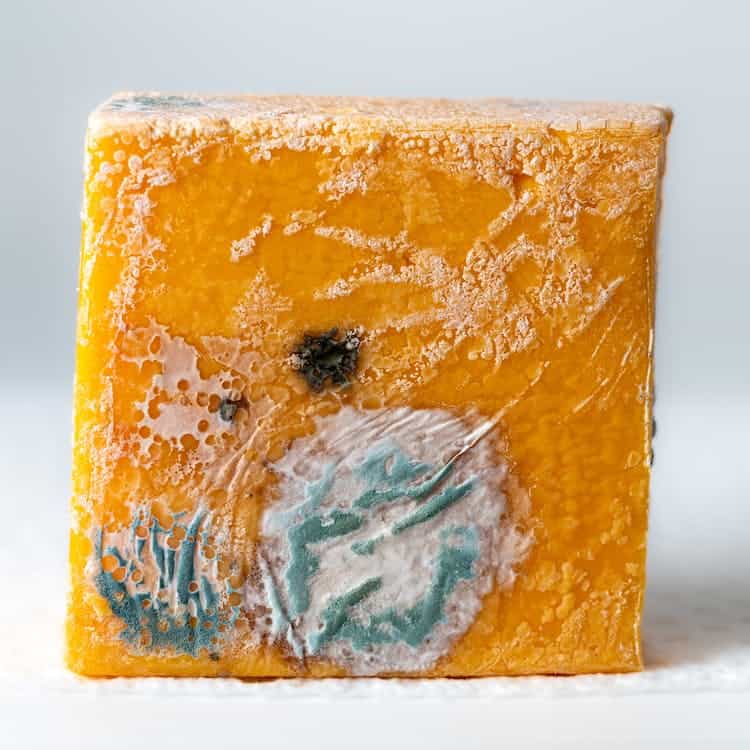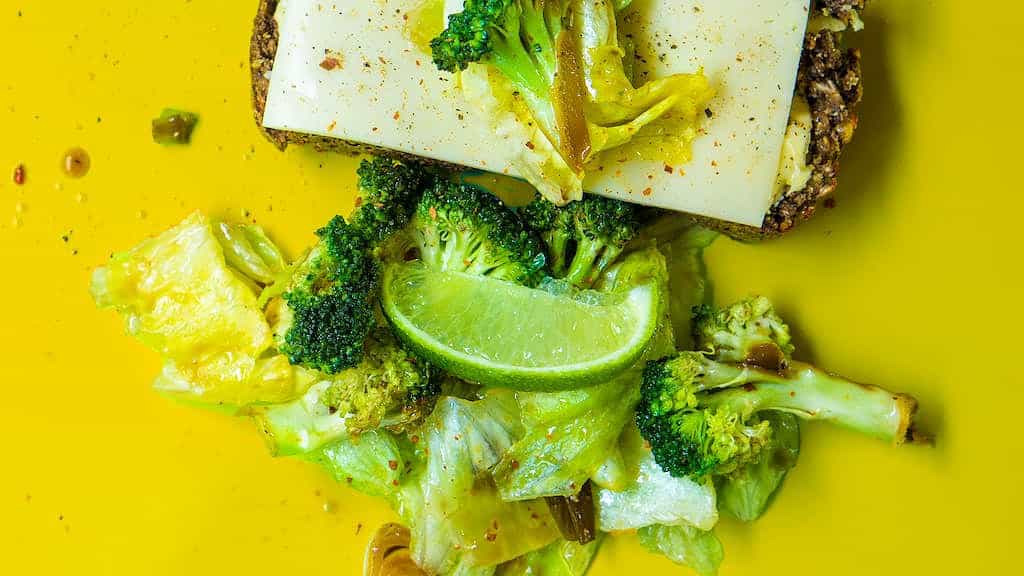Key Takeaways
- Dogs can eat vegan cheese in moderation as long as it does not contain harmful ingredients like onions, garlic, or artificial sweeteners.
- Always check the ingredients list to ensure the vegan cheese is safe for dogs.
- Some vegan cheese options, such as those made from soy or nuts, can provide dogs with additional nutrients.
- Vegan cheese should never replace a balanced diet for dogs and should only be given as an occasional treat.
- It is important to monitor your dog for any adverse reactions when introducing any new food, including vegan cheese.
- Consult with your vet before adding vegan cheese to your dog’s diet, especially if your dog has any health conditions or allergies.
Summary
Can dogs eat vegan cheese? The answer is yes, but there are important considerations to keep in mind. This article explores why dogs can safely consume vegan cheese in moderation, the potential benefits, and potential drawbacks. It also covers the key ingredients to look for and avoid, as well as tips for introducing vegan cheese into your dog’s diet. Whether you’re a vegan dog owner or simply curious about alternative dietary options for your furry friend, this article provides valuable insights and guidance.

What is vegan cheese?
Vegan cheese is a dairy-free alternative to traditional cheese that is made using plant-based ingredients. It is specially created to cater to individuals who follow a vegan diet and avoid consuming animal products. Vegan cheese is commonly made from nuts, soy, coconut oil, and various other plant-based ingredients. It aims to replicate the taste, texture, and melting properties of regular cheese while providing a cruelty-free option for vegans.
Is vegan cheese safe for dogs?
While vegan cheese is considered safe for human consumption, it is not necessarily suitable for dogs. Dogs have specific nutritional requirements that differ from humans, and their digestive systems are adapted to process animal-based proteins more efficiently. While dogs can tolerate small amounts of vegan cheese as an occasional treat, it should not be a staple part of their diet.
Potential risks and concerns
Feeding too much vegan cheese to dogs can lead to digestive upset, including diarrhea, gas, or bloating. Additionally, certain plant-based ingredients used in vegan cheese, such as garlic or onions, can be toxic to dogs. It is crucial to always read the ingredient list and consult with a veterinarian before giving dogs any kind of cheese, including vegan alternatives.
Alternatives for dogs
If you’re looking to provide your dog with a cheese-like treat, there are dog-friendly options available. Many pet stores offer specialty dog treats that resemble the taste and texture of cheese. These treats are formulated specifically for dogs and meet their nutritional needs. Additionally, some natural cheese, like cottage cheese or low-lactose options, can be given to dogs in moderation as an occasional treat.
Consulting with a veterinarian
It’s always best to consult with a veterinarian before introducing any new food or treat into your dog’s diet. They can provide guidance based on your dog’s individual needs and ensure they receive a balanced diet. Veterinarians can also recommend suitable alternatives to cheese that provide the necessary nutrients for your dog’s well-being.
Importance of a balanced diet
Whether you choose to include vegan cheese or any other type of cheese in your dog’s diet, it’s essential to prioritize a balanced and nutritionally complete diet. Dogs require a proper mix of proteins, fats, carbohydrates, vitamins, and minerals for optimal health. Always ensure their overall diet meets their specific dietary requirements and take into account any individual sensitivities or health conditions they may have. Regular visits to the veterinarian will help ensure your dog’s diet aligns with their specific needs.
Recipes and Alternatives to vegan cheese for dogs
Dogs should not consume vegan cheese as it may contain ingredients that are harmful to them, such as onions or garlic. However, there are plenty of other vegan foods that dogs can enjoy. Here are some alternative options:
Can Dogs Eat Vegan Cheese – FAQ
What is vegan cheese?
Vegan cheese is a dairy-free alternative to traditional cheese, made from plant-based ingredients. It is popular among people following a vegan lifestyle or those with lactose intolerance.
Is vegan cheese safe for dogs?
Vegan cheese can be safe for dogs, but it should only be given to them in moderation. It’s important to check the ingredients of the vegan cheese, as some may contain harmful additives or ingredients that are toxic to dogs.
Can dogs digest vegan cheese?
Most dogs can digest small amounts of vegan cheese without any issues. However, some dogs may have sensitive stomachs or food allergies, so it’s best to introduce any new food gradually and observe how your dog reacts.
Is vegan cheese nutritionally beneficial for dogs?
Vegan cheese is not a necessary part of a dog’s diet, as they primarily require animal proteins for optimal health. While vegan cheese can provide some vitamins and minerals, it should not be relied upon as a primary source of nutrition for dogs.
Are there any health risks associated with dogs eating vegan cheese?
Feeding dogs excessive amounts of vegan cheese can lead to digestive issues such as diarrhea or upset stomach. Additionally, some vegan cheeses may contain ingredients like garlic or onions which are toxic to dogs and should be avoided.
How much vegan cheese can I give to my dog?
The amount of vegan cheese you can give to your dog depends on their size, weight, and overall health. As a general rule, it’s best to keep serving sizes small and only offer vegan cheese as an occasional treat.
What are the alternatives to vegan cheese for dogs?
If you’re looking for alternative treats for your dog, there are plenty of safe and healthy options available. You can opt for dog-friendly fruits and vegetables such as carrots, cucumbers, or apple slices. Additionally, there are specific dog treats and chews available in pet stores that are designed to meet their nutritional needs.
Should I consult my veterinarian before giving my dog vegan cheese?
It’s always a good idea to consult with your veterinarian before introducing any new food into your dog’s diet, including vegan cheese. They can provide guidance based on your dog’s specific dietary needs and help you make an informed decision.
Can puppies eat vegan cheese?
Puppies have different nutritional requirements than adult dogs, and it’s generally not recommended to feed them vegan cheese. Puppies need a well-balanced diet that includes adequate amounts of high-quality animal proteins to support their growth and development.
What are the signs of an adverse reaction to vegan cheese in dogs?
If your dog experiences an adverse reaction to vegan cheese, you may notice symptoms such as vomiting, diarrhea, excessive gas, or changes in their energy levels. If you observe any of these signs, it’s best to discontinue feeding them vegan cheese and consult your veterinarian if necessary.
Conclusion
While vegan cheese can be a suitable alternative for those following a plant-based diet, it is not recommended for dogs. Dogs have different nutritional needs compared to humans, and their diets should primarily consist of animal-based proteins. Vegan cheese lacks important nutrients that are essential for a dog’s health, such as vitamin B12 and high-quality animal proteins. Feeding dogs vegan cheese on a regular basis can lead to nutritional deficiencies and other health issues. It is important to consult with a veterinarian before making any changes to your dog’s diet. Opting for specially formulated dog-friendly treats or consulting with a veterinary nutritionist is a safer alternative to ensure your dog’s nutritional needs are met.
📚 Sources:












